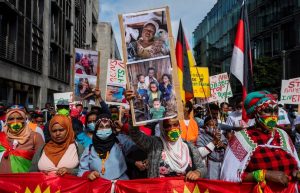A set of crises has instead ensued, slowing the pace of reform and underlining questions many asked last year whether Abiy’s award had been premature. Widespread ethnic and other political violence, the detention of opposition leaders and deepening polarization over the schedule of the promised elections — now delayed by the coronavirus pandemic — have created growing instability.
“The committee has increasingly given awards to processes like in Ethiopia, rather than past achievements. The expectation is of course that the award nudges the process along,” said Henrik Urdal, director of the Peace Research Institute Oslo, which closely monitors the Nobel Peace Prize process. “I think the Abiy award was probably the riskiest of their process awards, though it would still be too early to call it a failure.”



